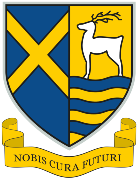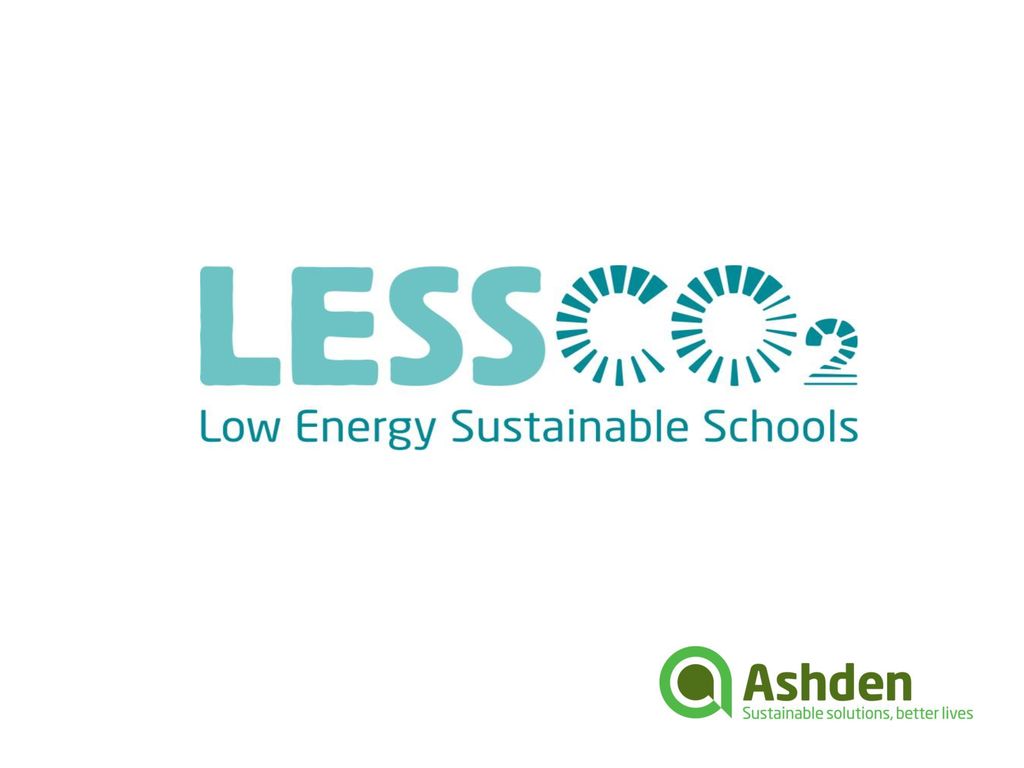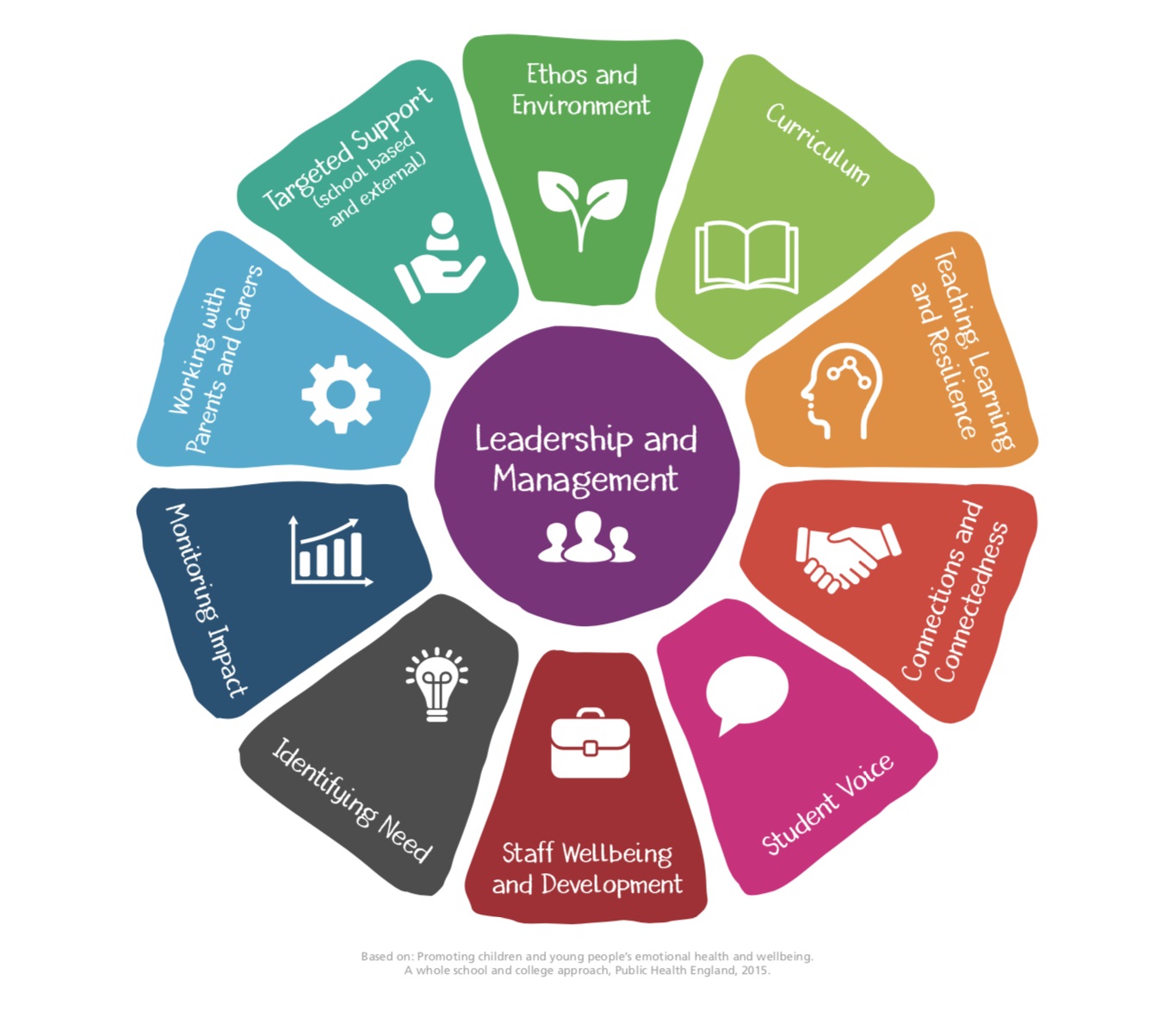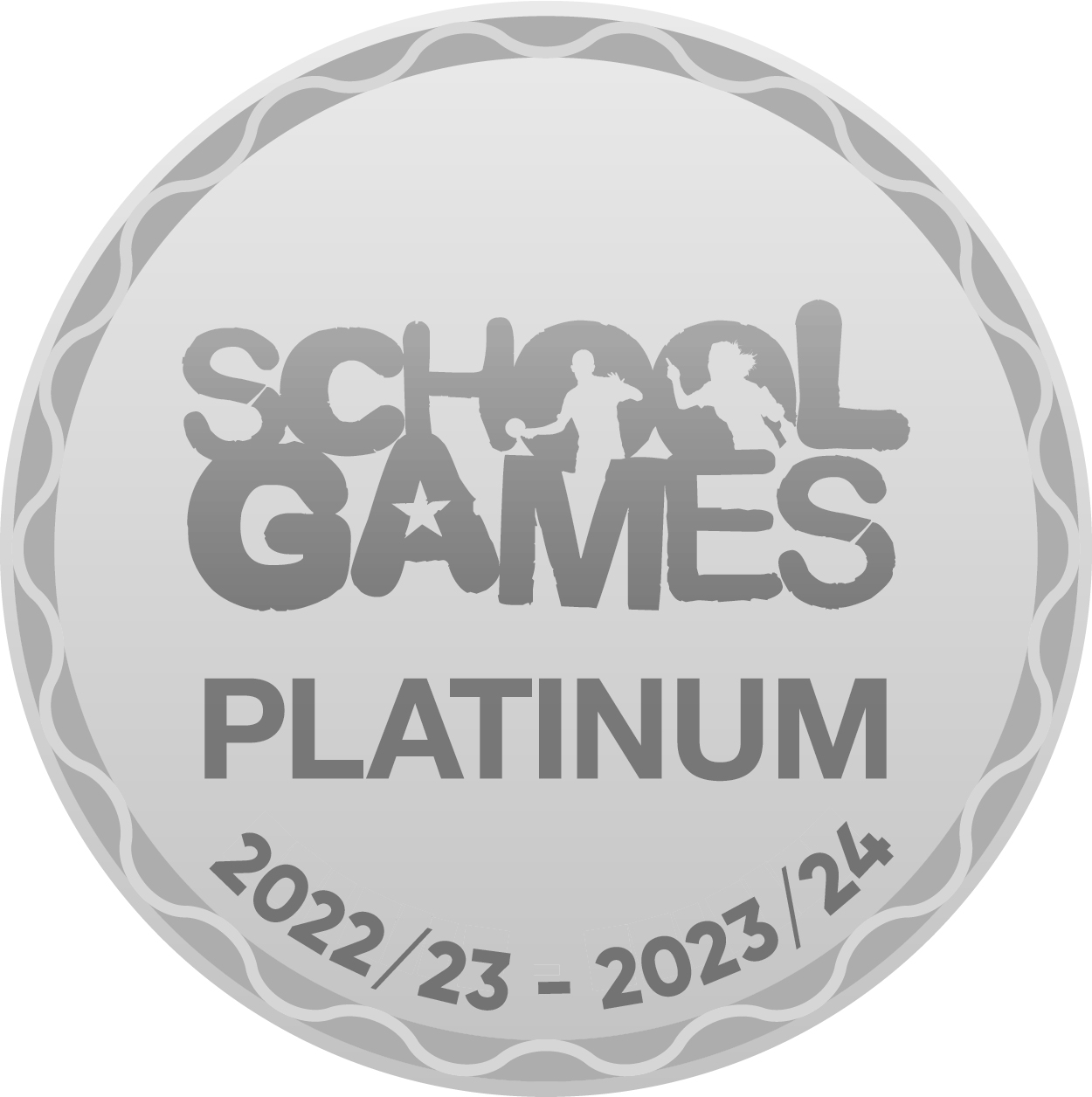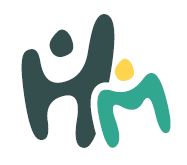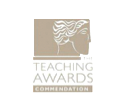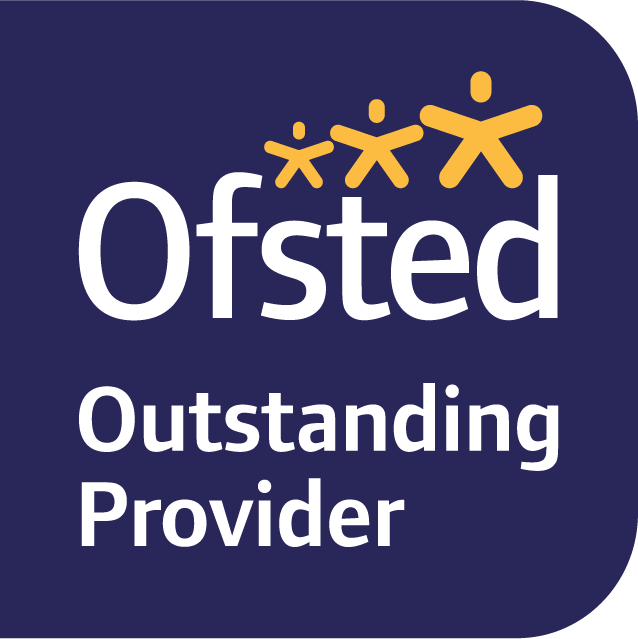- {SECTION_MENU}
Teaching & Learning
The delivery of our broad and balanced curriculum is focussed on the principle of consistent Quality First Teaching, based upon the STAGS standards of TEACH and LEARN and the STAGS values. All students are supported to adhere to our key Presentation Fundamentals, which ensure high standards and positive approaches to learning for all, whilst being provided with timely and meaningful feedback to support progress.
The exceptional quality of Teaching and Learning is underpinned by pedagogical research and an ethos of Continuous Professional Development for all colleagues, as epitomised by the view of Dylan Wiliam that “every teacher needs to improve, not because they are not good enough, but because they can be even better.” As a result, students enjoy exceptional learning environments across the school that enable them to thrive:
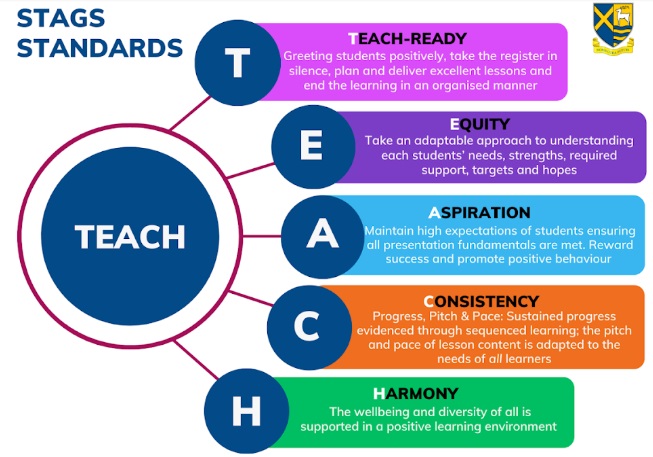
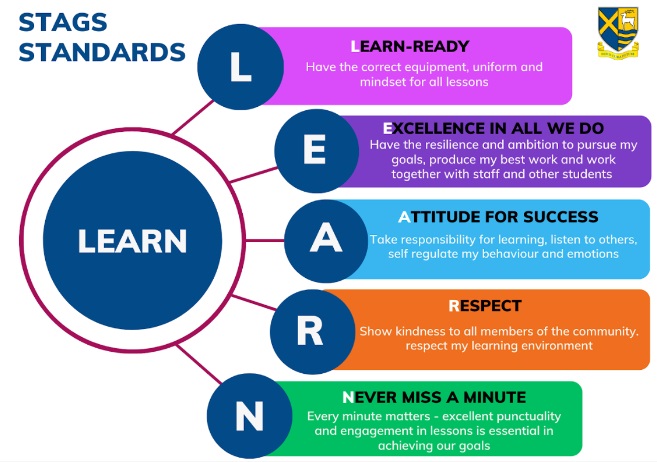
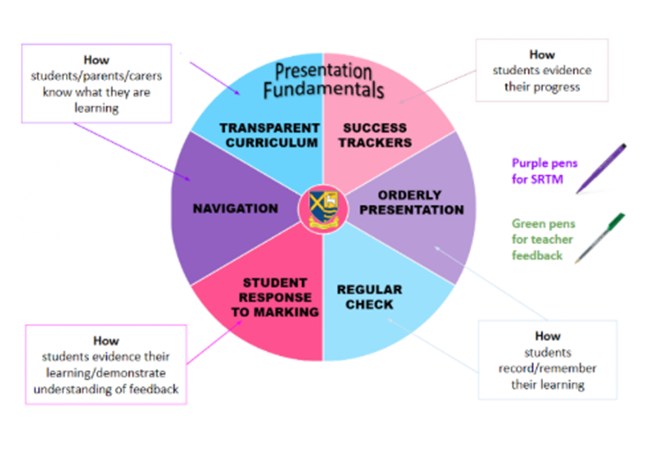
Blended Learning
Blended Learning is our exciting programme where students use their own devices in lessons for all subjects; all students use devices in lessons to access Google Classroom and other named online resources as directed by classroom teachers, undertake live research and collaborate with peers as well as generate learning resources and retrieval materials. Devices are often used to support students' progression and deepen thinking when completing home learning, as per the schedules outlined in the Home Learning section of the website.
All students have a device either purchased as part of our device scheme partnership with Freedom Tech or brought in as part of our Bring Your Own Device programme.
The learning possibilities for Blended Learning are infinite! This continues to be a very exciting opportunity to prepare students for vocations where they will integrate online systems, encourage independent learning and responsibility - both in terms of learning and device upkeep - and offer adapted and deep learning experiences across all areas.
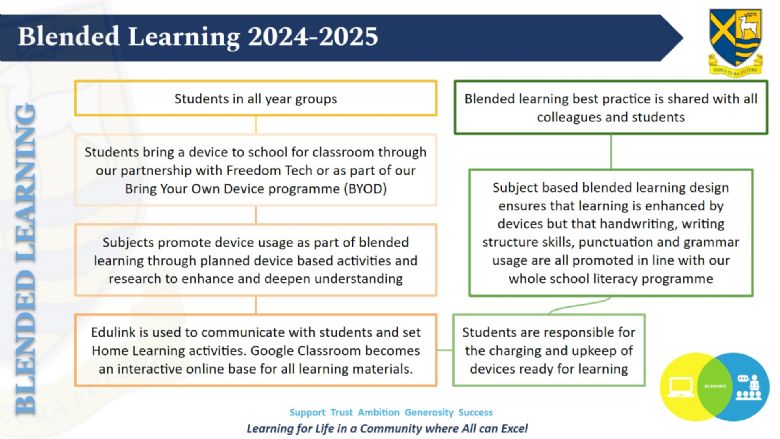
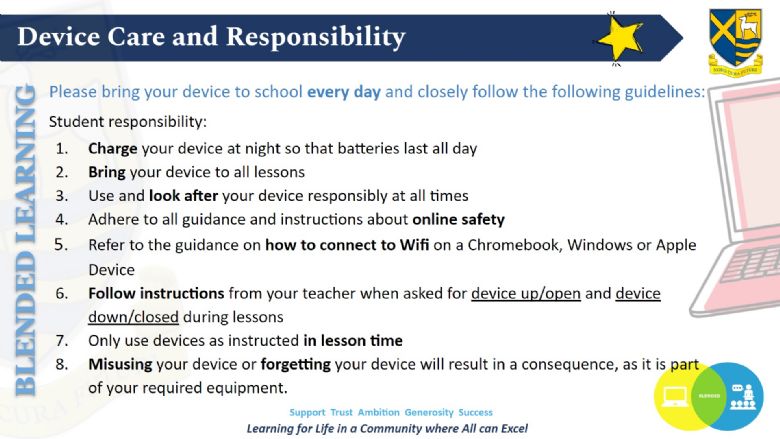
SAM Learning
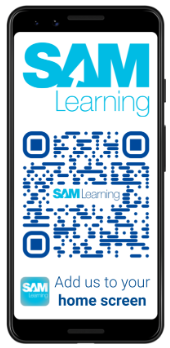 Here at STAGS, we are always looking for ways to extend learning. Part of our improvement programme involves the use of SAM Learning, multiple award winning online learning covering almost all our subjects. Studies show that pupils achieve two GCSE grades on average better than expected with as little as 30 minutes a week use of SAM Learning.
Here at STAGS, we are always looking for ways to extend learning. Part of our improvement programme involves the use of SAM Learning, multiple award winning online learning covering almost all our subjects. Studies show that pupils achieve two GCSE grades on average better than expected with as little as 30 minutes a week use of SAM Learning.
Your child can access SAM Learning anytime or anywhere. Whether you are at school, at home, on the bus, waiting for friends and it works on any device, from smartphone, tablet and PC.
Work is set for your child each week in English Language, Maths, Biology, Chemistry and Physics….building their foundations if they are in KS3 or focusing on areas where students drop essential marks in exams at GCSE! What’s more, SAM learning will guide them to fill their learning gaps automatically, guide them to extend their knowledge when they have secure knowledge and guide revision based on what they have been learning over the academic year.
Click here to get logged in.
Remote Learning
In the instance of learning being accessed from home, teachers distribute learning through Edulink and Google Classroom. Students are given a timeframe and instructions on how to submit work undertaken by their teacher - some work will be submitted online and some reviewed upon return to school.
Further specific details on remote provision are distributed as and when required.
Below are some links and explanations of how our different programmes and systems can be used to support and enhance learning that may be remote:
Edulink is the primary source of Home Learning contact between teachers, students, parents and carers. Any learning to be undertaken will be distributed through this system which may include links to other online learning formats. In the unlikely event of a school closure, live Google Meet learning will not take place on day one but may form part of the remote provision after this point.
Google Classroom is a platform that allows teachers to upload lesson resources, share articles and set tasks. Google Classroom areas are subject and class specific. All applicable materials that support learners at STAGS are shared via this platform.
The Oak Academy website has a range of links, lessons and learning ideas for a range of subjects and is frequently updated. This is the recommended starting point for remote provision from the Department of Education and offers over 10,000 lessons made by teachers for use up to Year 11.
JSTOR is a resource library which is largely used at KS5 but can be accessed to extend learning across KS4 and KS3 too. The site consists of scholarly content that students can access for further wider reading around their areas of study for all subjects.
BBC Bitesize is an online revision, information and examination preparation resource website made by the BBC. There are KS3, GCSE and Post 16 sections available on the website as well as other pertinent information and content (including Careers).
Home Learning
Research over several years in this country and abroad has shown that there is a positive relationship between time spent on home learning and students’ overall achievement at secondary school level.
Home Learning is set because it not only reinforces classroom learning, but also helps young people to develop skills and attitudes they need for successful lifelong learning. It supports the development of independent learning skills, including the habits of enquiry and investigation.
At St Albans Girls’ School, Home Learning is an integral part of the curriculum; it is planned and prepared alongside all other programmes of learning. Home Learning tasks are selected ensuring they are appropriate to the age, ability and circumstances of the students. Teachers also make sure that they reflect the research findings that suggest tasks linked to the work completed in school are more effective and where there is feedback linked to home learning, the impact on progress is greater. There is also evidence to suggest that the longer a student spends on a piece of home learning, that it has less impact on their learning. We have tailored our home learning guidance to take this into account.
Each subject has a programme of Home Learning tasks linked to the programme of study. Home Learning can be completed at home but can also be completed at school. The Library Resource Centre (LRC), for example, is open each morning at 8.15am and closes at 4.30pm as well as being open to students at break and lunch time. In addition, many departments will organise after school and lunch time study sessions to help students with their studies.
Home Learning for Years 7-9 will be set as per the chart below and outlined in our Home Learning Policy with each task lasting 20 minutes for Year 7, 30 minutes for Year 8 and 40 minutes for Year 9. In years 10 and 11, each home learning activity should last 60 minutes and in Sixth Form, students are expected to study one hour independently per hour of the subject taught. Tasks will be set on Edulink and any necessary materials will be uploaded to Google Classroom with teachers identifying on Edulink if this is the case. Teachers often signpost students to optional Take It Further (TIF) tasks, which are designed to deepen thinking and challenge them further.
| YEAR 7 | Home Learning activity will take a maximum of 20 minutes to complete |
|---|---|
| 1 Home Learning activity per week - Maths, English, Science, French and Spanish | |
| 1 Home Learning activity per fortnight - Design & Technology, REP, Art, History and Geography | |
| YEAR 8 | Home Learning activity will take a maximum of 30 minutes to complete |
|---|---|
| 1 Home Learning activity per week - Maths, English, Science, French and Spanish | |
| 1 Home Learning activity per fortnight - Design & Technology, REP, Art, History and Geography | |
| YEAR 9 | Home Learning activity will take a maximum of 40 minutes to complete |
|---|---|
| 1 Home Learning activity per week - Maths, English, Science, French and Spanish | |
| 1 Home learning activity per fortnight - Design & Technology, REP, Art, History and Geography | |
| YEARS 10 & 11 | Home Learning activity will take a maximum of 60 minutes to complete |
|---|---|
| English, Maths, Science and Art will set two Home Learning tasks per week and other examination subjects will set one Home Learning task per week. Each will take up to 60 minutes to complete. | |
|
Drama students will be set practical rehearsals in the lead up to exam performances and these may require more time. |
|
| YEARS 12 and 13 | Students are expected to spend approximately 3 hours a day on Home Learning |
|---|---|
| Post 16 courses impose greater demands than GCSEs and a need for flexible approaches to Home Learning. Students will be expected to record Home Learning/preparation set and to spend about one hour of independent home learning per hour of the subject taught. | |
Home Learning Timetable 2024 - 2025: Year 7
Home Learning Timetable 2024 - 2025: Year 8
Home Learning Timetable 2024 - 2025: Year 9
